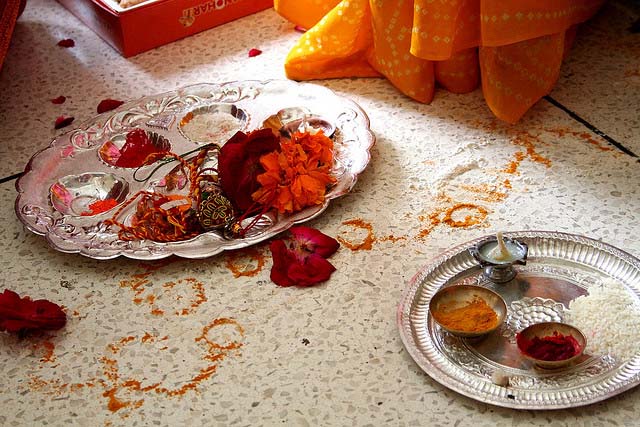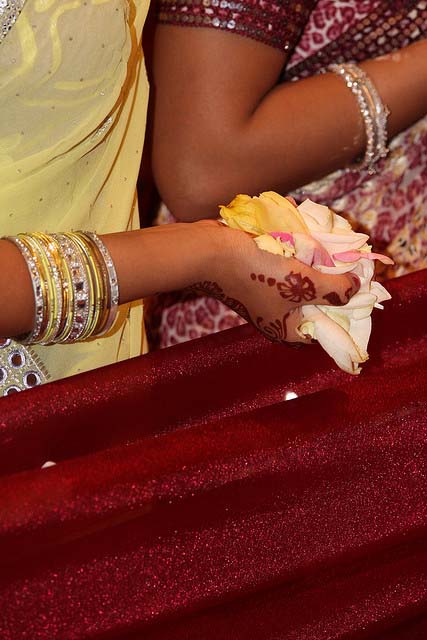

The Indian Festival of Bhai Dooj Revisited
I grew up in a small and close-knit family in the hills of Darjeeling. Our two bedroom wooden house sheltered me, my elder sister, our parents and my paternal grandfather whenever he would visit. It was a life of happiness, giving and comfort. Our needs were almost nil; our days fulfilling to say the least – except we had no brother and there was a void, especially at the time of Bhai Dhooj.
What North India calls Bhai Dooj, Nepalis call “Bhai Tika”, we Bengalis call “Bhai Phota”. It’s one of my most favorite Hindu festivals, where a sister follows a set of customs to extract a promise of her brother’s protection throughout her life and under all circumstances. The brother in turn makes that promise through various customs and a token of cash or a gift. After the exchange of money and gifts, an out of the ordinary feast follows.

A Festival of Brothers, without Brothers
Even though in Darjeeling every man, who is not a prospective boyfriend, is either a “Bhai” or a “Daju” and we went from neighbor to neighbor putting “tika” on our choice of brothers we especially looked forward to that little ceremony of our own with our own brother. In our family a brother’s place was filled by our grandfather. My sister and I adorned our paternal grandfather with “bhai phota” till the time he was no more and the void came back.
I do not know when our family altered that custom and why a grandfather was made to substitute for a brother! I never even let myself question it lest I give rise to doubts that makes us discontinue this absolutely fabulous tradition. And so it went on and we enjoyed it a little more with each passing year. When my grandfather passed away, of course, there was no one else to take his place. As always, time healed and the pain of his absence slowly faded.
We continued going to our neighbors’ and partaking in the joys they would allow us but that too ended when my father was transferred out of Darjeeling, the only home we had always known. I stayed back to finish college but the dribble finally stopped when I passed out in ’99. Both “Bhai Phota” and “Bhai Tika” soon became a thing we did in the past.
Fast forward to 2011 – my daughter about 2 years old, I find myself in Gurgaon, India. My in-laws and parents all come together to my place to enjoy a day of festivities with “Bhai Phota” and I am pleasantly surprised to know that it isn’t my family alone where the grandfather would gladly be the recipient of the “phota”. My father-in-law announces that he would be ready to partake in the ceremony with my daughter. My father whole-heartedly cues up for the cause as well. And so I find history repeating itself. My daughter immerses her little finger into a paste of sandalwood and puts her “phota” on the forehead of both her grandfathers while repeating whatever she can of the short mantra that needs to be recited.
The Human Connections
I tried to research this after the ceremony this year when my daughter excitedly went through the rituals again but I could not find anything much at all. A page in Wikipedia explains that “Yamraj, the God of Death visited his sister Yami on this particular day. She put the auspicious tilak on his forehead, garlanded him and fed him with special dishes. Together they ate the sweets, talked and enjoyed themselves to their heart’s content. While parting, Yamraj gave her a special gift as a token of his love and in return Yami also gave him a lovely gift which she had made with her own hands. That day Yamraj announced that anyone who receives tilak from his sister will never be thrown. That is why this day of Bhai Duj is also known by the name of Yama Dwitiya.”
But how did we get to the grandfather? When and why did this happy turn of events occur?

Check out Kriti’s site!
Related Articles:
Chatty Divas – NRI Dilemma – IST or EST?
Chatty Divas – Food for Thought
Meeting Durga Ma on two continents
The Tale of a surrogate Mother
